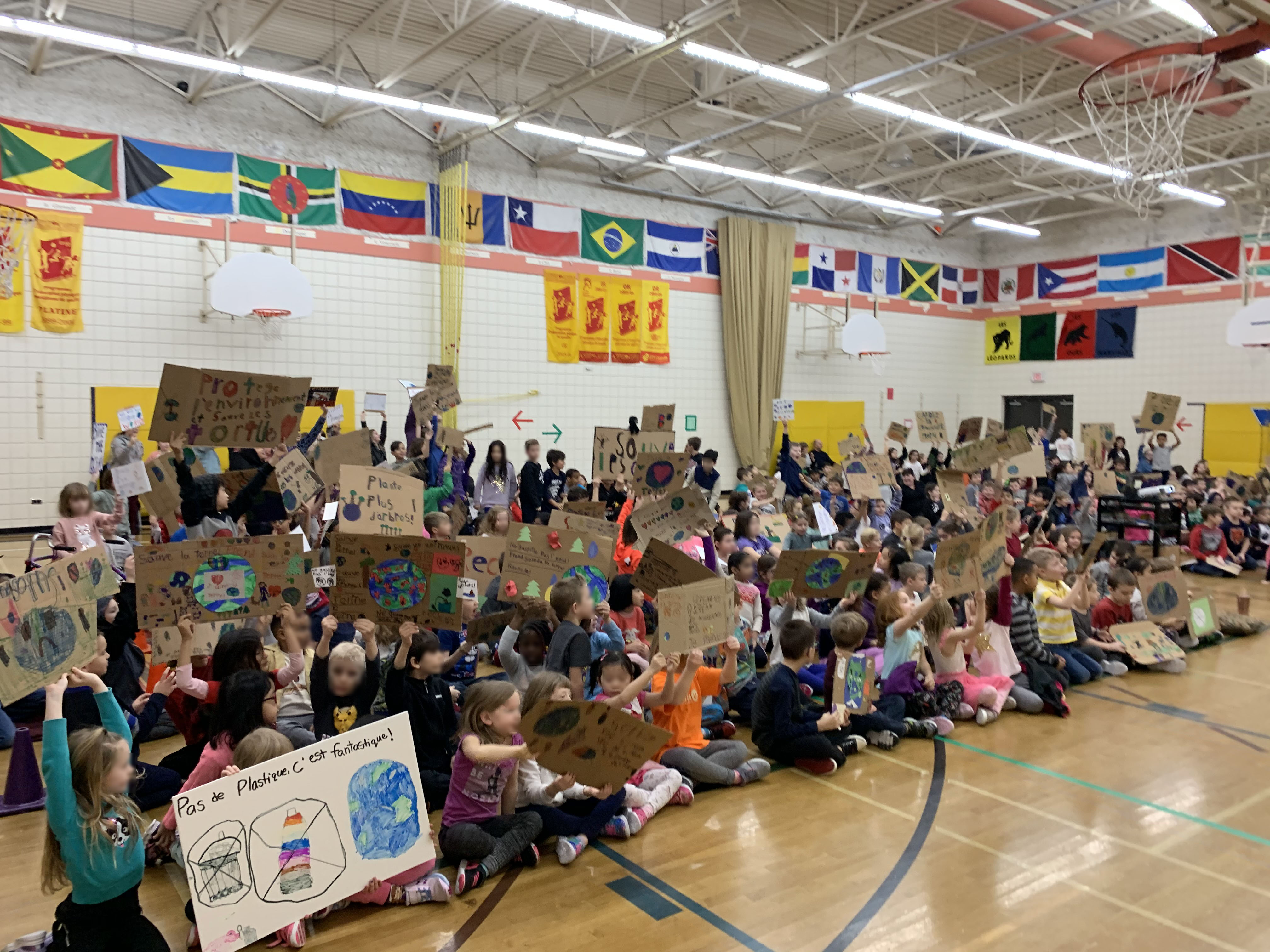2019-2020 School Plan for École St. Germain
The ĚđĐÄÖ±˛Ą has developed a (MYSP) that is based on the four quadrants of the Indigenous Circle of Courage. Over the next four years, all ĚđĐÄÖ±˛Ą schools will be working towards the MYSP outcomes identified in the four quadrants of.
All goals in École St. Germain's school plan for this school year are aligned with one or more of the outcomes in the MYSP. Furthermore, some of the outcomes in the school plan are also linked to goals identified by teachers in their classroom profiles at École St. Germain. Classroom profiles are completed by individual teachers in the fall in order to identify specific strengths and needs of each classroom in order to guide instruction, intervention, and support.
Collective Efficacy
MYSP goal states: "All staff will demonstrate greater collective efficacy, capacity and well-being." This goal focuses on how we work together and how we can maximize the impact of our collaborative work. Consistent with the points that define this goal as well as goal in the MYSP, we are working with the staff this year to develop collaborative norms, decision making structures, and discussion strategies that ensure that the time we spend working together is used as efficiently as possible.
Building Relationships and Resiliency
Several classroom profiles identified social emotional learning and self-regulation as goals. As a result, the school has set out a plan for the year that aligns with MYSP outcome from the Mastery quadrant of the Circle of Courage as well as outcome from the Belonging quadrant.
Here is our goal for this year in this area:
By the end of this year, all teachers, admin and EAs will deepen their understanding of:
- The social-emotional needs of our students;
- The impact of certain life experiences on our students' emotional development and their capacity to concentrate and self-regulate;
- Strategies that build and maintain strong and healthy attachments between students and adults that promote emotional growth.
To attain these goals, we will be working with Colleen Drobot from the Gordon Neufeld Institute in Vancouver. Dr. Neufeld's Institute is a leader in teaching attachment theory. Ms. Drobot is a registered counsellor and former teacher with many years of experience with applying attachment theory in the classroom. She will have much to offer our staff regarding ways that we as educators can build healthy attachments while also building resiliency in our students. She will be facilitating two workshops for our staff in January and March. We expect to continue working with her next year and are also looking for ways to expand this goal to involve parents in the future.
In conjunction with these workshops, staff are reading Dr. Gabor Maté's book "Scattered Minds", which deals with the effects of attachment on attention. This reading will be supplemented with discussion and other videos from Dr. Gordon Neufeld at all staff meetings.
Developing Our Data Literacy Skills to Set Impactful Goals
A large focus for ĚđĐÄÖ±˛Ą in the MYSP is to bring data to the centre of planning through the application of a process known as a data inquiry cycle. The cycle is mentioned in MYSP strategic goal and . In order to analyse the data through this process, staff will also begin to use new technologies to navigate the data as they journey through the inquiry process. The new technologies will also be used to support any resulting changes that may be implemented.
École St. Germain staff will begin navigating the data in areas identified in class profiles, including reading, writing, math, and oral French. In order to maximize the impact on student success of any professional learning that may occur in these areas, staff will engage in collaborative data inquiry cycles to identify any challenges as specifically as possible. This inquiry process would include analysis of report card results, samples of student work, provincial evaluations, and any relevant sources of data that we may have.
Staff will work through each of the identified areas through this inquiry process throughout the year. In May, specific goals will be established and prioritized based on the outcomes of the inquiries. This will be an important step in planning for the next year. It is expected that this process will produce a limited number of goals in some of these areas, but the goals should be measurable and impactful for our students.
Early Literacy
We are also looking to cognitive science, as mentioned in MYSP , to guide us in our early years' literacy instruction. This year, we have already begun looking at ways to include more phonological awareness into Kindergarten instruction, apply a wider variety of research-based screening tools in K and Grade 1, and develop more targeted and multisensory interventions for reading in K-1. All these practices are widely accepted in current research as we learn more and more about how the brain develops, especially as it relates to reading and literacy. We expect to continue learning more about literacy through research next year while continuing to apply our learning to our work.
Sustainable Development
A major focus of the school for the last while has been sustainable development and climate change. These themes are consistent with MYSP goals Our goal for this year is to continue this work to increase our students' awareness of issues related to sustainable development while also giving them opportunities to participate in initiatives that address these issues. We expect that our efforts will allow us to work towards our goal of attaining the status of Transformation as an Eco-Globe School.
Our work in this area this year will include participating and hosting climate strikes/assemblies to bring attention to the climate change crisis. We will also looking at initiating a walking school bus, planting trees in the community, increasing our recycling, promoting sustainable practices around the school that reduce waste, and engaging students in conversations in classes and through our student Environment Club.



